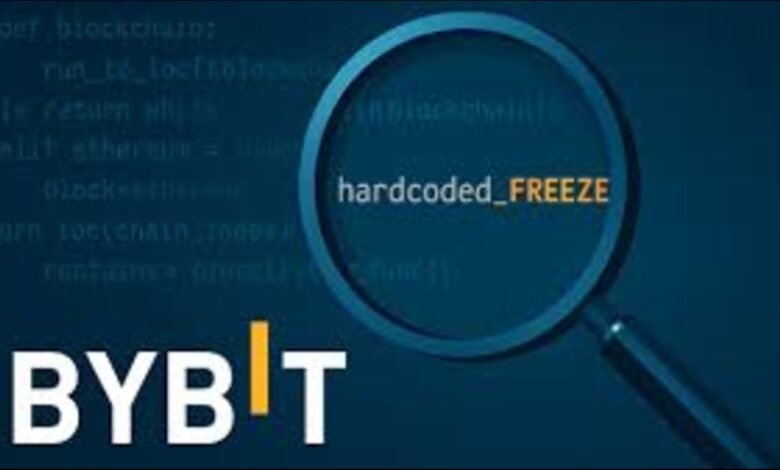Bybit Report Reveals 16 Blockchains Can Freeze User Funds

A new report by Bybit’s Lazarus Security Lab has found that 16 major blockchains can freeze or block user funds. The report, called “Blockchain Freezing Exposed,” shows how these networks can stop transactions during hacks or emergencies. Researchers said the goal is to make blockchain systems safer and more transparent.
The team examined 166 blockchains using AI tools and manual checks. They discovered that 16 already have freezing features, while 19 more could easily add them. These powers let blockchain operators or validators block certain wallet addresses. Once frozen, funds inside those wallets cannot move until the restriction is lifted.
According to the report, three main types of freezing methods exist. Some chains use hardcoded blacklists directly in their code, others use validator settings to stop transfers, and a few rely on special smart contracts. The report names BNB Chain, VeChain, Sui, Aptos, and HECO as examples.
In fact, real-world cases show these tools in action. In May 2025, Sui froze $162 million after hackers stole $223 million from the Cetus exchange. After a community vote, the funds were later sent back to users.
Around the same time, Aptos added a “TransactionFilter” tool that blocks blacklisted transactions. In 2022, BNB Chain paused its network to stop a $570 million bridge exploit. It later blacklisted the attacker’s wallet and froze part of the stolen coins. Likewise, VeChain had done something similar in 2019 after losing $6.6 million.
Meanwhile, the report says these powers can help protect users during attacks, but they also raise questions about control. “Many networks now employ pragmatic security measures to protect users,” said David Zong from Bybit. “It’s also essential that these tools are transparent, both for trust and governance.”
Furthermore, Bybit’s researchers also explained that some systems, like Cosmos and HECO, use flexible code that could make freezing easier in the future. Their study used an AI model to scan blockchain code for blacklist and transaction filter tools. Each case was then reviewed manually to confirm if freezing was truly possible.
That said, the report states that while these features can stop hackers, they may reduce decentralization. Therefore, it calls for clear disclosure whenever such powers exist.
Also Read: VCI Global Buys $100M OOB Tokens, Becomes OOBIT Treasury Head




